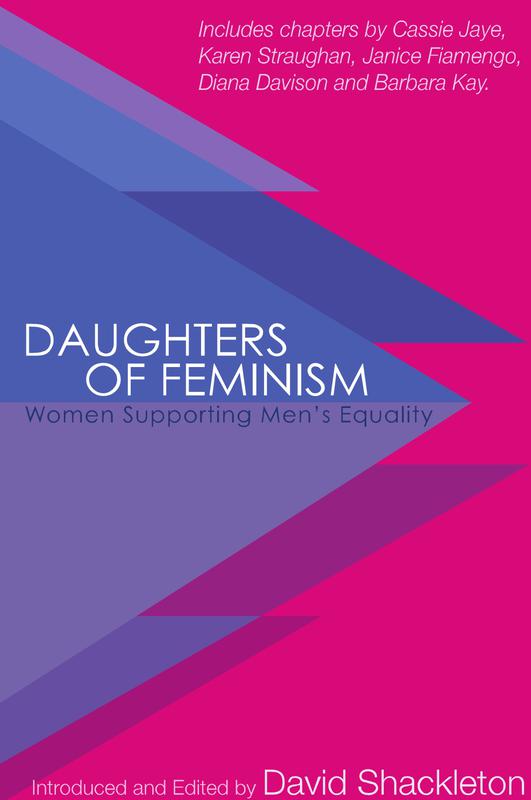Gender Healing
Follow us on
Loving Men, Respecting Women (The book in a nutshell) The overarching principle that pervades and unifies every element of this book can be expressed in a single word: Balance. The book’s “radical” premise is this: in the benefits enjoyed and in the liabilities suffered, in the power and in the victimization, in the freedoms and in the constraints, it all balances out between Man and Woman—and it always has. By helping to promote a general understanding and perception of this balance throughout the culture at large, this book’s ambition is to affect a fundamental gender paradigm shift. As it stands now, common wisdom perceives imbalance—an imbalance of power enjoyed by men and an imbalance of victimization suffered by women. Society has long recognized a world of male power/female victimization, yet that has never been more than half of the full story. The missing half can be found. It’s contained within a shelf full of excellent but as yet rather obscure books. What might be thought of as the female power/male victimization half of the story remains obscure because neither sex wants to hear it. Nevertheless, for every female complaint, there is an equal and opposite male complaint. For every one CEO there have been many POWs. Hard/hazardous labor, battlefields, prisons, mines, the streets, the sewers—men have always occupied both extremes, the most and the least enviable positions on earth—the latter in far greater numbers than the former. Imagine, if you will, a gigantic scale where there is love on one end of the balance beam and respect on the other: This love/respect dynamic upon which gender balance pivots can be described in two brief statements: Throughout history, both sexes have respected men more than they’ve respected women. Throughout history, both sexes have loved women more than they’ve loved men. Feminism has made women’s lesser status along the respect axis abundantly clear. Both sexes have listened and both sexes have worked together to change the cultural environment in ways that promote respect for women. That men are less loved, however, may ring true from the outset yet be met with cynicism just the same. Both sexes receive the female side with empathy and the male side without empathy exactly because both sexes love women more and men less. Hostility toward women is given the pejorative label of “misogyny” because hostility toward women is forbidden. Ours is more a misandrist (“male bashing”) culture. But few know this word misandry—a word that would, if it existed in common parlance, condemn hostility toward men the way the word misogyny condemns hostility toward women. Apparently, in our lack of love toward men, we don’t concern ourselves with the current cultural outpouring of derision toward men even to the extent of giving it a truly pejorative label. Balance is revealed in the following four key statements: One: At birth, members of both sexes are assigned roles, conditioning, and socialization that facilitate and ensure a world in which men are more respected/less loved and women are more loved/less respected. Two: Historically, men have been no more empowered to escape their biology, role, socialization, conditioning, and concurrent fate than women have. Three: The two sexes, equally powerless and equally powerful, have plied an equal overall force of influence upon the world and upon each other, engaged in equal complicity and partnership in the sculpting of our world, and are thus equally responsible for outcomes both good and bad. Four: Throughout history the enormous consequences and vast repercussions suffered by women for being less respected have been matched in full by the enormous consequences and vast repercussions suffered by men for being less loved. These four statements are key, because taken together they lead inexorably to the one key truth: It All Balances Out!
Click here for more information about this book and to purchase.
The Hand That Rocks the World... An original and penetrating exploration of gender grounded in social psychology, the psychology of societies. The riddle of how feminism has been so powerful under a banner of powerlessness is solved. Women's social power is explained and explored and discovered to be equal to but different from that of men. Original and fundamental models of male and female power in codependent relationship and of psychological growth are presented and illustrated with story and example. The task of social advocacy around gender equality is explored and developed in a context of what has worked historically. The book ends with a moving appeal to transcend ideologies of gender judgment and work together to create a future desired by and good for both women and men. The Hand That Rocks the World is presented as a detective puzzle, in which the reader is challenged to discern the deeper gender reality behind the codependent cover story of male power and female victimhood. Not to be missed by any serious student of gender or psychological growth.
Click here for more information about this book and to purchase.
The sister book to "Sons of Feminism" (2017) by Janice Fiamengo, "Daughters of Feminism" presents the stories of 30 women about how they came to gender balance, to an appreciation for the legitimacy of men's issues as well as women's issues. These are stories of triumph in the search for truth within a culture of denial and misdirection, by women who love men and want to heal the modern misperception of men.
Click here for more information about this book and to purchase.


